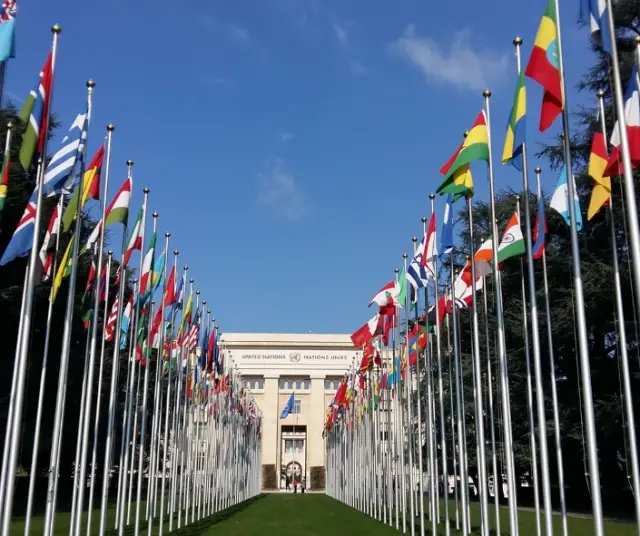United Nations Day is an annual commemoration celebrating the founding of the United Nations Organization ( UN ) and stressing the importance of international cooperation, global peace and security, as well as sustainable development and human rights. Every October 24, countries around the world come together to reflect on the achievements of the UN and the challenges we still face as a global community. In this article, we will explore the history behind United Nations Day, its relevance on today's world stage, and the goals it seeks to promote for a more just and peaceful world.
The United Nations Foundation
The United Nations Organization (UN) was founded on October 24, 1945, after World War II, with the main objective of maintaining international peace and security and avoiding devastating conflicts in the future. The UN replaced the League of Nations and pledged to foster cooperation among nations and resolve disputes through dialogue and negotiation rather than armed confrontation. Since then, the UN has grown and evolved to address a wide range of issues, from poverty eradication to climate change and human rights.
The Relevance of United Nations Day
United Nations Day is more than just a celebration. It is an opportunity to remember the importance of global solidarity and international cooperation in an increasingly interconnected world. The UN has become an essential forum for international diplomacy and joint decision-making on issues of global scope. On this day, countries reflect on the need to address common challenges, such as poverty, inequality, violence, and transnational threats, through joint work and mutual respect.
United Nations Day Highlights
Each year, United Nations Day focuses on a specific theme that reflects the current challenges and opportunities facing the world. These topics range from human rights and education to gender equality and the fight against climate change. Through these themes, the UN seeks to inspire collective action and public awareness on issues crucial to humanity.
- Gender Equality and Women's Empowerment: Promoting equity and respect for women's rights around the world.
- Sustainable Development Goals: Highlighting efforts to eradicate poverty, protect the planet and ensure prosperity for all.
- Climate Action: Addressing the urgent need to combat climate change and protect the environment for future generations.
- Human Rights: Highlighting the importance of protecting the fundamental rights of all people, regardless of their origin, gender or beliefs.
Activities and Events on United Nations Day
United Nations Day is celebrated around the world with a variety of activities and events. These include:
1. Conferences and Seminars
Experts, government leaders and activists come together to discuss global issues and propose solutions. These events foster mutual understanding and the search for joint actions.
2. Cultural and Artistic Events
Artistic performances, exhibitions, and film screenings are used to convey messages of peace, tolerance, and cultural diversity.
3. Awareness Campaigns
Organizations and governments launch awareness campaigns on specific issues, using United Nations Day as a platform to reach a wider audience.
4. Volunteering and Solidarity Actions
Many people participate in volunteer activities and community projects in honor of United Nations Day, contributing to building a better world.
The UN and the Sustainable Development Goals
One of the most prominent initiatives of the UN is the 2030 Agenda for Sustainable Development, which establishes 17 Sustainable Development Goals ( SDGs ) with the purpose of addressing the most pressing global challenges. These goals include the eradication of poverty, access to quality education, gender equality, climate action, and the promotion of peace and justice. United Nations Day provides an opportunity to remember the importance of these goals and to urge governments, organizations and individuals to work together to achieve them.
